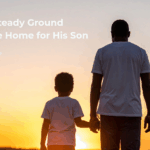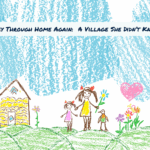John Walsh, who joined Harvest House as Chief Operating Officer in January 2024, brought with him nearly three decades of law enforcement experience. His career has been marked by high-risk operations, criminal investigations, and disaster preparedness—skills that have become invaluable in his leadership at Harvest House. Since stepping into his role, he’s applied those hard-earned lessons to guide the organization through the most challenging of circumstances, including Hurricanes Helene and Milton. The response was not just a test of operational readiness but a testament to the strength of the team and the mission they all serve.
Over my 29 years in law enforcement, disaster response has become second nature, but it’s a skill that didn’t develop overnight. It was forged through countless experiences, challenging moments, and intentional training. Whether working high-risk operations or leading criminal investigations, every incident offered new lessons, each shaping the way I approach emergencies today. When Hurricanes Helene and Milton struck, those hard-won lessons were put to the test. At Harvest House, we didn’t just respond—we leaned into our preparation, teamwork, and resilience, ensuring our community was supported every step.
One of the first things I’ve learned in disaster response is that no plan survives first contact. Preparation is essential, but success hinges on making rapid, well-reasoned decisions as the situation unfolds. In the wake of the hurricanes, our first instinct was to assess the scope of the situation—what was at risk, where we could make the most immediate impact, and what resources we had available. That mental framework gave us clarity to act quickly without sacrificing precision, a key lesson I’ve carried from the field into my leadership role at Harvest House.
During the storms, it was more than just policies or protocols that guided us—it was a deep sense of duty to protect the vulnerable. I remember standing with our team, each holding the weight of knowing that our clients, families, children, and individuals were relying on us to be their lifeline. The stakes were personal, and that’s what drove us to be relentless in our efforts. As the wind howled and rain flooded the streets, our team worked around the clock to make sure our clients felt supported, safe, and seen.
Flexibility is the bedrock of resilience in disaster response. Even as we executed our plan, we had to pivot multiple times. Helene and Milton presented unpredictable challenges, but our team’s preparation met adaptability at every turn. We trusted each other to act with confidence and independence, delegating tasks to the right people and knowing they’d deliver. When the power went out, we didn’t panic—we had prepared for this. I’ll never forget the determination in the eyes of our staff as they swiftly moved clients to safety, ensuring that even in the darkest of times, no one was left behind. That’s the power of trust and teamwork.
Clear and compassionate communication became our lifeline internally and with the community. Confusion can escalate fear in a crisis, but calm and transparent messaging can provide much-needed reassurance. I’ve learned to communicate concisely, focusing on what’s most important at the moment. Whether it was relaying updates to our team or coordinating with external partners, every piece of information had to flow smoothly. We kept the community informed without causing unnecessary alarm, and the trust that resulted from our transparency allowed people to feel safe, even when the storms raged outside.
At the heart of this response was a simple truth: people. The people we serve, the people we work alongside, and the people in the community who step up in times of crisis. I can’t express enough gratitude for the resilience shown by our staff, many of whom were personally affected by the hurricanes yet continued to show up for others. The exhaustion was palpable, but so was the commitment. When fatigue set in, we celebrated small victories—a client getting in touch with their family, a new shelter location opening, or even a simple “thank you” from someone we helped. These moments reminded us why we do what we do, and they kept us going when it felt like we had nothing left to give.
After the storms passed, our work wasn’t finished. Evaluating our response is critical to improving for the next crisis. We held debriefs to discuss what worked, what didn’t, and how we could do better. This process of reflection is essential to our growth as an organization, and it allows us to keep evolving and enhancing the way we serve our community.
Through it all, I’ve learned that disaster response is as much about heart as it is about logistics. It’s about staying calm when everything around us is chaos and knowing when to move fast and slow down just enough to think. It’s about trusting our preparation, our training, and our people. Most importantly, it’s about being there—being present—because the real work of recovery begins when the winds die down.
At Harvest House, our response to these hurricanes reflected everything I’ve learned about leadership: lead with purpose, act with precision, communicate clearly, and stay connected to the mission. We didn’t just survive the storms; we emerged stronger, more unified, and more prepared for the next challenge. And when the next crisis comes, we’ll be ready.
John Walsh
Chief Operating Officer
Harvest House





